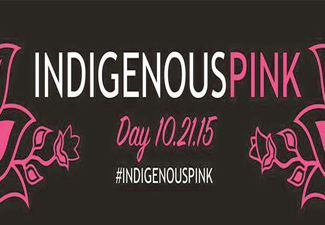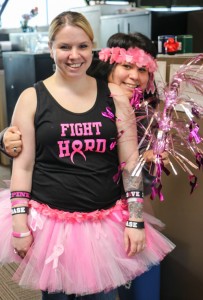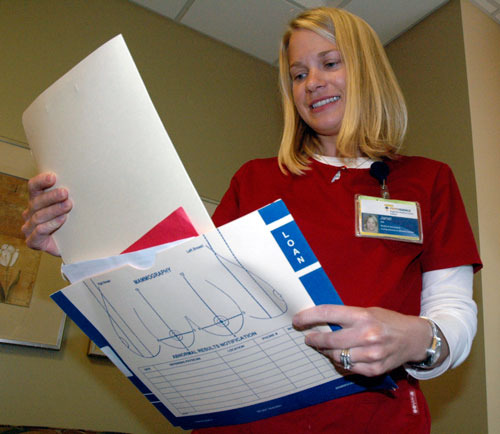On October 21, AICAF asks men and women of all ages to wear pink and share photos on social media using the hashtag #indigenouspink to spread breast cancer awareness.
by Daanis Chosa and Julia Jacobson, Native Times
MINNEAPOLIS, Minn — The American Indian Cancer Foundation recently announced the first-ever “Indigenous Pink Day,” a national breast cancer awareness campaign for indigenous women.
On October 21, AICAF asks men and women of all ages to wear pink and share photos on social media using the hashtag #indigenouspink to spread breast cancer awareness, said AICAF Executive Director Kris Rhodes.
“All of America has jumped onto pink October and sometimes it’s done in ways that exploit the cancer issue,” Rhodes said. “But for the American Indian Cancer Foundation, Indigenous Pink is an important way to raise visibility in our communities where cancer is still invisible and to take control with screening.”
Breast cancer is the second leading cause of cancer death and the most common cancer found in American Indian and Alaska Native women. But when breast cancer is found early, the five-year survival rate is 98 percent, according to Susan G. Komen for the Cure.
Barbara Scott, an enrolled member of the Lumbee tribe of North Carolina who lives in Charlotte, was diagnosed with Stage 4 breast cancer in 2005. Over the next six months, she underwent aggressive chemotherapy and radiation to remove a tumor that had metastasized to her lymph nodes.
“I was ready to give up, I was tired of fighting and wanted to just go home,” Scott said.
Scott was at particular risk for breast cancer, she said, because her mother had breast cancer and her family carries the gene for the disease.
But regardless of a family history, American Indian women shouldn’t be scared of breast cancer and modern medicine, she said.
“We are a resilient people, we have survived for forever, and we can’t let something like breast cancer get into the way,” Scott said. “We need to be warriors and stand strong.”
Chris Davis, an enrolled member of the Fond du Lac band of Lake Superior Chippewa in northern Minnesota, is a nurse practitioner for the Fond du Lac tribe and a breast cancer survivor. She was diagnosed with Stage 0 breast cancer in 2013 and feels fortunate her cancer was caught early.
“I think in the community where we are in, where there are such high rates of cancer, we need to find these cancers early,” Davis said.
Although Davis was recommended to have her first mammogram at age 50, she had her mammogram at age 40. Davis said she may have had a more invasive form of cancer if it was detected later.
“Take your health into your own hands. Utilize your resources and ask as many questions as you can,” she said.
In recent years there has been a tremendous increase in the number of American Indian women who have been screened for breast cancer in Minnesota, said GayLynn Richards, the regional coordinator of Sage, Minnesota’s breast and cervical cancer screening program.
Richards also said there has been a reduction in breast cancer deaths among Minnesota American Indian women over the last decade, according to Minnesota Cancer Surveillance System data.
She credits the lower death rate to programs like the Shakopee Mdewakanton Sioux Community mobile unit, which brings mammograms and other screening services directly to the communities where American Indian women live.
“We listen, learn and seek out information from the community members, and together come up with an intervention or educational approach that is respectful,” Richards said. “We love the idea of bringing the services to the community.”
For more information about Indigenous Pink Day, see americanindiancancer.org/pink.
Daanis Chosa (Ojibwe) is a college student, lacrosse player, and community health outreach specialist.
Julia Jacobson is a recent college graduate and communications specialist.
© Native Health News Alliance
NHNA creates shared health coverage for American Indian communities at no cost. Registered users can download additional print, web and audio content at http://www.nativehealthnews.com and publish as is or add their own reporting, highlighting important issues within the local Native community. NHNA services are free to all those who think good journalism has a positive impact in the lives of all of our readers, listeners, and viewers.





